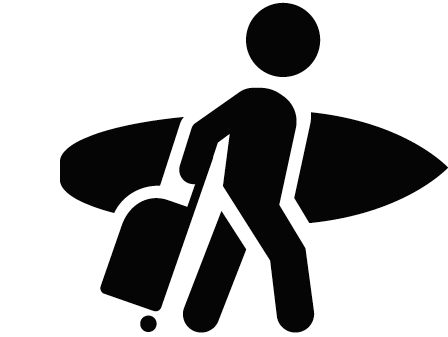Surfing in Cyprus

Cyprus is an island country in the Eastern side of the Mediterranean Sea. The country is known as the 'Jewel of the Mediterranean' and according to the greek mythology is the birthplace of Aphrodite, the ancient goddess of love and beauty. The island has warm weather, crystal clear waters, stunning views, exquisite cuisine and friendly people living up to the standards of its divine patroness. Cyprus has good exposure to all kinds of mediterranean wind swells and thanks to the Sirocco and mistral winds the island enjoys good surf consistency throughout the whole year . No matter what your surf level is there are waves for everyone in Cyprus. The best time to surf on the island is from March to November because this is when the west and north coast light up and register the bigger waves of the year. Kitesurfing and windsurfing are also quite popular thanks to the strong southwest wind that prevails during most parts of the year. Cyprus may not be one of the best surf destinations in the world but does have a lot of charm. The island offers good entertainment for everyone and a good dose of adrenaline for the surfing enthusiasts.
Climate in Cyprus
The climate in Cyprus is mediterranean with mild and rainy winters and hot and sunny summers. The best time to surf on the island is during spring and fall, basically from March to October. This is when the west and north coast light up and register the bigger waves of the year. The water is fairly warm throughout the year. The average temperature in February is 17 °C (63 °F) and in August is 28 °C (82 °F).
Best surf spots in Cyprus
The best waves in Cyprus are found along the west coast of the island. The best surf spots are Venus Beach, Helios Beach, Cripplers Beach, Akrotri, Governor Beach, Kourion, Lady’s Mile Beach, Lara Bay, Paphos, Potimam Sandy Beach and Toxeftra Beach.
Budget Planning
Meal price range
Simple meals start at $4 USD. Mid-range meals start at $17 USD. Dining & drinking at high-end restaurants can cost anywhere from $50-80 USD.
Equipment rental
There are a couple surf schools where you should be able to rent gear. Might be best to bring your own.
Prepaid SIM cards
O2 is a good choice. SIM cards can be purchased from shops, kiosks and retailers.
Prepaid packages start at $24 USD.
Public transport
Most visitors to Cyprus rely on tour-company coaches to get around. Independent travellers have a choice of renting vehicles, catching buses, or taking taxis.
The transport system in the north is not as well-developed as the south. Your best bet if your in the North is to rent a car.
In the south taxis are numerous in larger towns and cities. All urban taxis should have meters. In rural areas taxis do not have meters, so agree on a fare before.
Rental cars are anywhere from $30-60 USD per day.
Gas prices
$0.80 USD a liter.
Types of risks
Rocks and rips.
How to prepare
Visa
Citizens from 62 countries, including the US, and Australia, can enter Bulgaria without a visa for up to 90 days.
Vaccines
Although it's not mandatory, it’s recommended that you have been vaccinated for hepatitis A & B, typhoid, rabies, meningitis, polio, Tdap, chickenpox, shingles, pneumonia, influenza, measles, mumps and rubella.
Things to know
Language & Currency
The official languages are Turkish and Greek. English is also widely spoken.
The currency is the Euro.
Best time to go
March to November.
Checking Surf forecast
Checking the forecast about a week before your trip is always a good idea. Understanding what the waves will be like and knowing what gear to pack is essential. You can check the forecast for the waves here.
Do I need pack a pharmacy kit
You should bring a basic kit. Including ear drops, eye drops, bandaids, ear plugs, gaze, alcohol, mosquito repellent and broad spectrum antibiotic ointment.
Travel/Surf Insurance
World Nomads has great travel insurance packages that are not super expensive and they cover surfing.
Emergency
Dial 199 or 112.
Check surf pictures of Cyprus at #surfcyprus.

